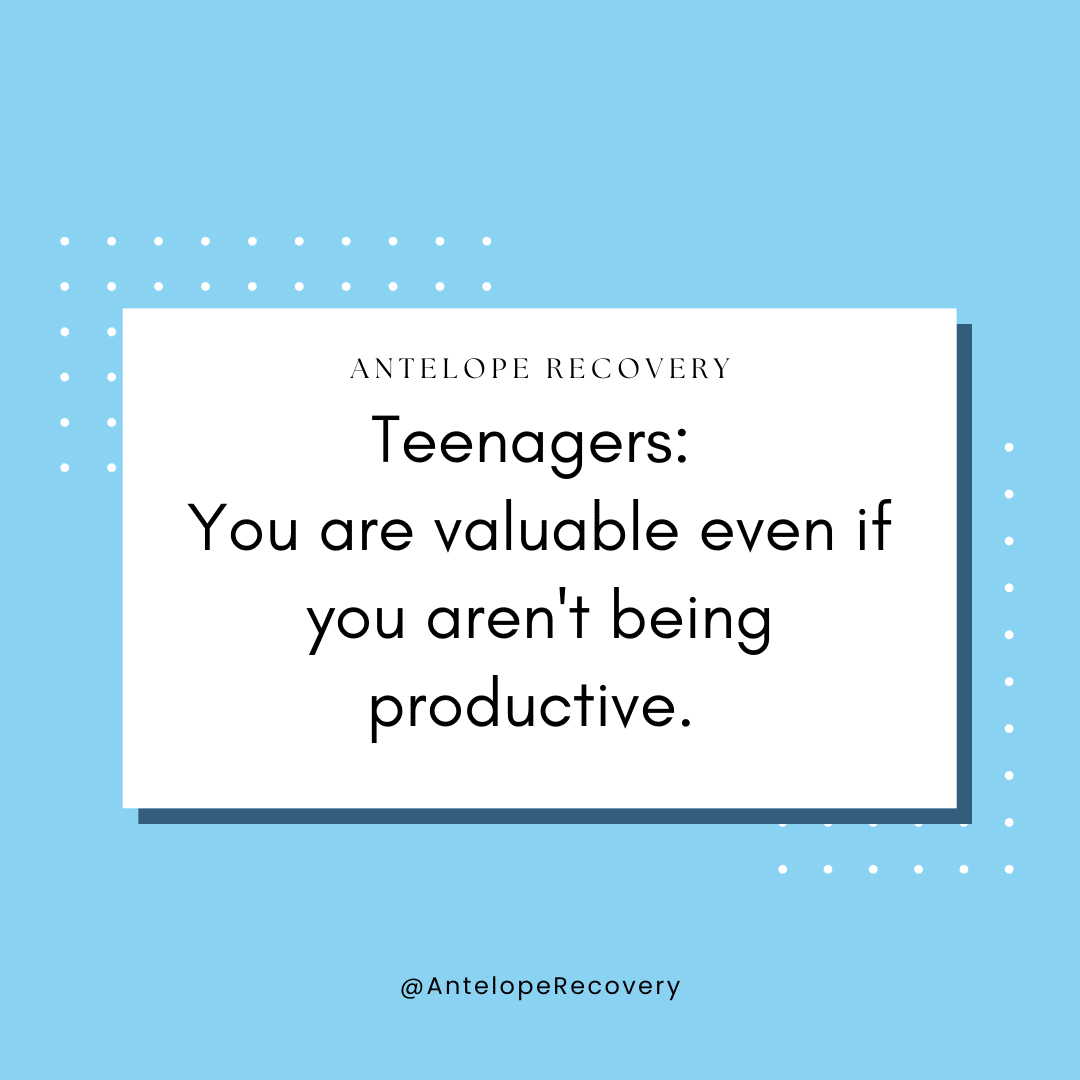While summer can be a time of relaxation, fun, and adventure for many teenagers, for teens who have struggled with their mental health, the changes that happen during the summer can require some extra attention. Ideally, summertime is a period of self-exploration and growth as teens try out new hobbies and practice being more independent. However, it can also be a time of increased stress, isolation, and mental health concerns. As a parent, it’s important to be aware of the potential challenges your teen may face during the summer months and take steps to support their mental health, especially if your teen has struggled in the past.
A guide to teen mental health over the summer months:
- The sudden lack of structure can cause anxiety and depression in teens.
For some teens, the transition from highly structured time in school to a completely open schedule can cause extreme anxiety as well as depression. Structure helps provide teens with a sense of purpose and meaning and directs their attention. Sometimes teens may experience a period of “structure withdrawal” in the early days of summer where they feel like they need to be busy, they have a lot of energy they don’t know what to do with, or they may start feeling unworthy or hopeless without tasks to fill their time. Learn more about summertime depression here.
Parent tip: Talk to your teen about this before summer starts! Let your teen know that this can sometimes happen, and ask them about what hobbies, camps, summer jobs, or activities they would like to do during the summer months and what goals they have for their summer.

- Teens can struggle with social isolation.
While summer is often associated with fun in the sun and hanging out with friends, it can also be a time of social isolation for some teens. With school out of session, teens may not have as many opportunities to interact with peers, which can lead to feelings of loneliness and depression. Some teens may have friends on extended vacations, are traveling, or are moving to a new school. These transitions can be highly stressful for teenagers. If a teen already has a friend group and the group of friends stops including them over the summer months, this can also be incredibly confusing and challenging for a teen to process.
Parent tip: If you notice your teen is isolating themselves or not connecting with peers, see if you can have relatives or other adults in their life invite them to help out or connect with them. You can also check out our summer groups and connect your teen to peers through Antelope.
- Substance use may increase.
For some teens, during summer, they want to party and experiment with drugs and alcohol. With more free time and less supervision, teens may be more likely to engage in risky behaviors during the summer months. It’s important to talk to your teen about the dangers of substance use and to keep an eye out for any signs of drug or alcohol use. Some of these signs can be changes in dress, grooming, and choice of friends; frequent arguments; sudden mood changes; changes in eating and sleeping patterns; and loss of interest in activities. Set clear expectations and rules for summer activities, and be clear on your boundaries about substance use with them from the beginning.
- Sleep patterns will be disrupted.
Without the structure of school and extracurricular activities, teens may be more likely to stay up late and sleep in during the summer months. Longer days and more hours of daylight can also impact our circadian rhythm and sleep-wake cycle. Disrupted sleep patterns can negatively impact mental health, contributing to irritability, anxiety, and depression. Encourage your teen to establish a consistent sleep routine to promote better mental health. Setting consistent time to wake up and go to bed, avoiding screens before bedtime, establishing a bedtime routine, and keeping the bedroom dark and cool are all part of good sleep hygiene.
So, what can you do to support your teen’s mental health over the summer?
- Keep the lines of communication open.
Talk to your teen about their goals, intentions, feelings, and concerns about their summer, and let them know that you’re there to support them. Encourage them to reach out if they need help or if they’re struggling with their mental health. Actively listening to them and being mindful of your reactions can help your teen feel comfortable sharing with you their challenges and stresses.
Here are some other strategies for effective communication with your teen. Journaling and creative activities, like doing art projects, can also help your teen express their feelings instead of ruminating on pent-up negative thoughts or emotions.
- Help your teen stay active and engaged.
Encourage your teen to participate in activities that they enjoy and that promote their mental health, such as exercise, hobbies, and socializing with friends. You can help them make a concrete schedule of tasks or activities they would like to accomplish, but remember to keep it doable, break big goals into small steps, and start off easy! This can help them stay active and engaged during the summer months. Volunteering can introduce some structure to your teen’s summer, make them feel engaged and feel a sense of purpose and accomplishment.
Maximize your time off and spend quality time with your teen. There are many free and low-cost activities in Colorado, and spending positive time with your teen can help with mood and anxiety and strengthen your relationship.
https://www.colorado.com/articles/5-free-things-do-colorado-kids
- Set healthy boundaries around technology use.
While technology can be a great way to stay connected with friends and family, excessive screen time can also contribute to feelings of isolation and depression, as well as lower self-esteem. Set healthy boundaries around technology use, and encourage your teen to take breaks from their devices. Model disconnecting from technology and show them that you value technology-free time and space. This can help the limits on technology use to feel less like a punishment and teach your teen skills for unplugging.
- Get outside!
Getting outside can have numerous benefits for teenagers struggling with their mental health, including reducing stress and anxiety, improving mood, and boosting self-esteem. Nature has a calming effect on the mind and can help teens feel more grounded and connected to the world around them. In Colorado, teens can do endless outdoor activities to get outside and enjoy the beauty of nature.
5. Seek professional help if necessary
If your teen is struggling with their mental health, don’t hesitate to seek professional help. A licensed mental health professional can provide support and guidance to help your teen manage their mental health concerns and build resilience. We offer teen groups for struggling teens throughout the summer- be sure to check them out! Teen groups are an easy and inexpensive way to ensure your teen is supported.
6. Maintain routines even during vacation times.
See if you can maintain bed and waking times, eat meals around the same time, and treat screens the same each day, even while traveling. These regular structures create a sense of safety for highly anxious teens. The structure it provides can be essential for them to regulate while managing their changing hormones, developing brains, and intense emotions.
How Antelope Recovery can help
Antelope Recovery is here to be your trusted partner in your teenager’s journey towards a healthier and brighter future. Whether you’re seeking help with medication-assisted treatment, addiction recovery, or mental health support, our comprehensive programs, including teen groups, family therapy, and individual therapy, are designed to provide the care and guidance your family needs. Don’t wait to take that crucial step towards positive change. Contact us today to explore how our services can make a meaningful difference in your teen’s life. Your family’s path to healing and hope begins with Antelope Recovery.


